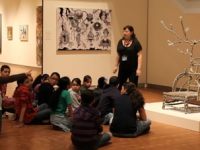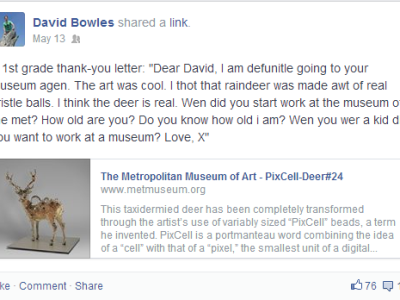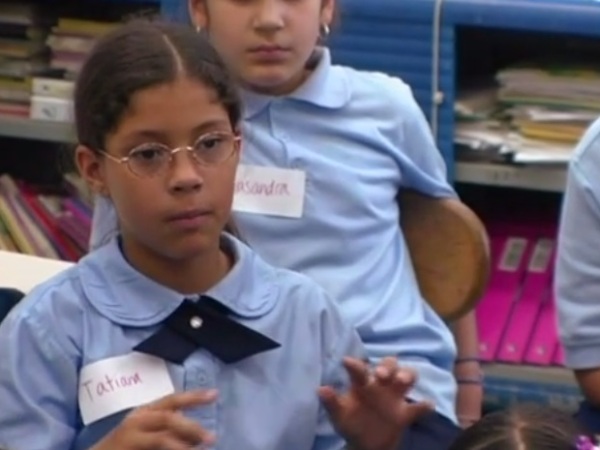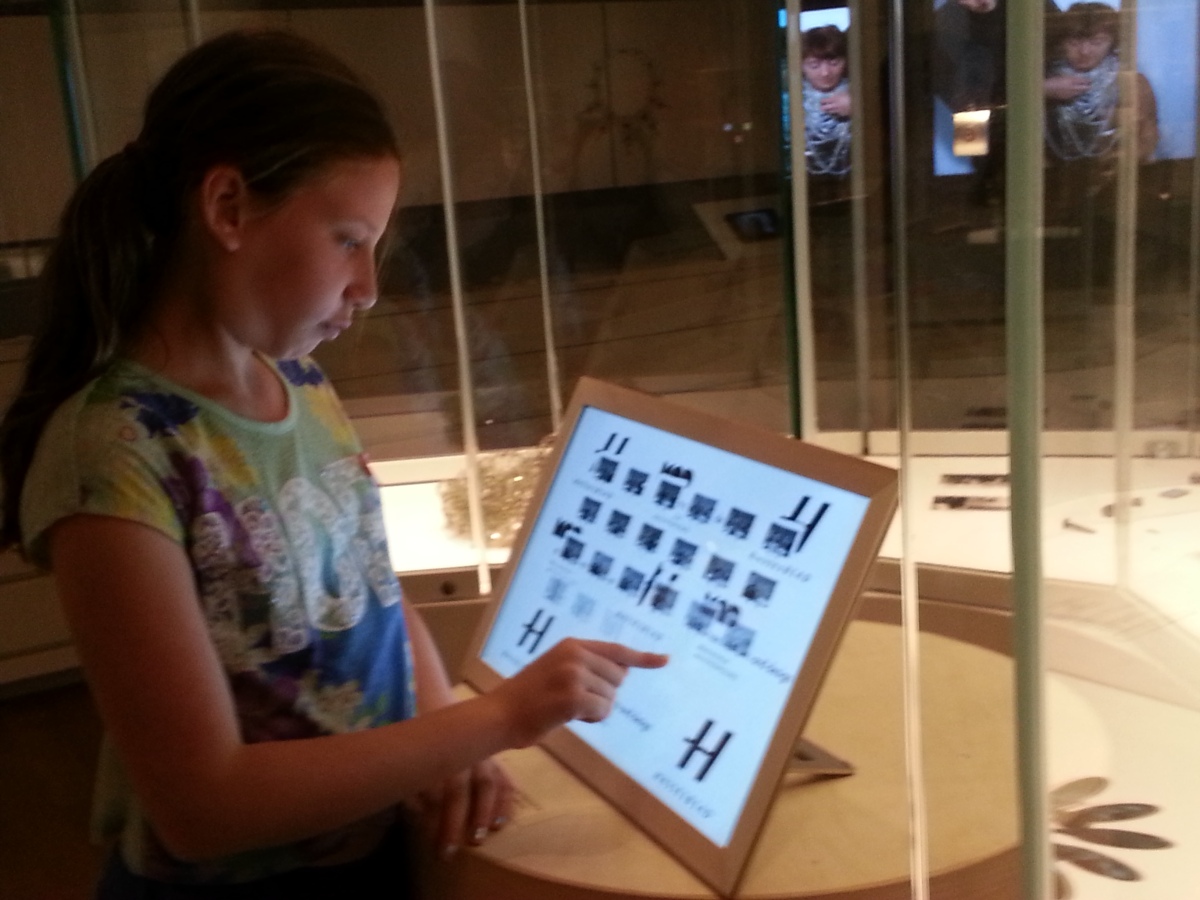I spent the first 15 years of my museum career working as a museum educator, and I am passionate about this work. Below are resources I have been creating for conferences and workshops, as well as on the Museum Questions Blog, that support museum educators in their work. Recent and upcoming projects include SEED:Baltimore, resources for facilitating object-based conversations, and resources for program planning.
Are you looking for additional resources, coaching, or other help? Email me and let’s talk!
Download the SEED: Baltimore Team’s 2024 Report on Gallery Education in Museums!
Facilitating Worthwhile Conversations with Objects
For most of my career I have taught using a fairly common version of object-based inquiry that involves engaging participants in careful looking followed by thematic questioning, with information used strategically as a tool to deepen understanding and conversation. Here are some resources related to this approach:
- Teaching with Objects – This is a slide show I developed for a 2024 class session on material culture, that is a concise, useful tool for getting started
- Looking at Art in the Classroom, Chapter 2 – PDF of a single chapter (poorly scanned, sorry)
- Looking at Art in the Classroom (Teachers College Press, 2010) – link to purchase
I find this approach to teaching with objects enjoyable and effective. It is also flexible: it works with participants of almost any age, and with any size group. It can be done in a museum gallery, in a classroom, or over a video call. And you can build activities, and all sort of sensory experiences, into this format.
Still, I find myself very interested in other approaches, and a number of Museum Questions posts have explored alternate approaches to talking about objects, or using objects to spark conversation. These include:
- Sarah Pharaon on Dialogic Questioning
- Ariel Sykes on Philosophy for Children
- Jackie Delamatre on strategies that help children become independent museum goers
- Claire Bown on Thinking Routines
Program Design: Using a Reflective Practice Cycle
The Reflective Practice Cycle is my go-to approach for planning a program of any type, for any audience. It starts by asking you to define your goals for participants, and then takes you through the process of aligning your program to give it the best shot of approving these goals. It also helps guide you through embedding evaluation, and improving programs over time.
Here are some resources to get started with this program planning methodology:
Museum Questions blog post on Reflective Practice – Read this blog post for an overview of this program planning approach.
Presentation on The Reflective Practice Cycle – This is a presentation I gave at the Small Museums Association Conference in 2024
Worksheet – Use this worksheet to plan a program using these steps (the PDF version. This version is editable. And if you want, here is a model of a completed worksheet, for reference.
From the Museum Questions Blog
Some of my blog posts exploring museum education are among my top-read posts, with tens of thousands of views to date. Here are the most-read blog posts in this category:
Why Should Schools Visit Museums?
A current project of mine calls for a very specific justification of school visits to museums. I believe strongly that school groups should visit museums, and that museums should provide great programs for these groups, despite the fact that the these visits are time-consuming (for schools as well as museums) and expensive. But this project is leading me to…
Keep readingWhat does a museum educator do? (And do we need them?)
A few weeks ago, a colleague told me that she is optimistic that her museum is becoming a truly educational institution. “And when that happens,” she said, “we’ll put ourselves out of business.” In other words, the purpose of a museum’s education department is to help keep the institution focused on its educational goals. In…
Keep readingSchools and Museums: Goals for Students
This week, I am beginning the process of reflecting on the past 25 posts about field trips. In this post, I am interested in goals and value: How do the many contributors to Museum Questions answer the question, “Why should school groups visit museums?” What do their answers tell us about the current state of museums, museum education, and school field…
Keep readingWhat is engagement, and when is it meaningful?
In a recent post, I noted that museums seem to be shifting from education to engagement. I must admit that “engagement” has always seemed to me to be an ambiguous term, representing a reluctance to ask visitors to involve themselves with challenging content, and opening up the museum to any experience necessary to keep people…
Keep reading





